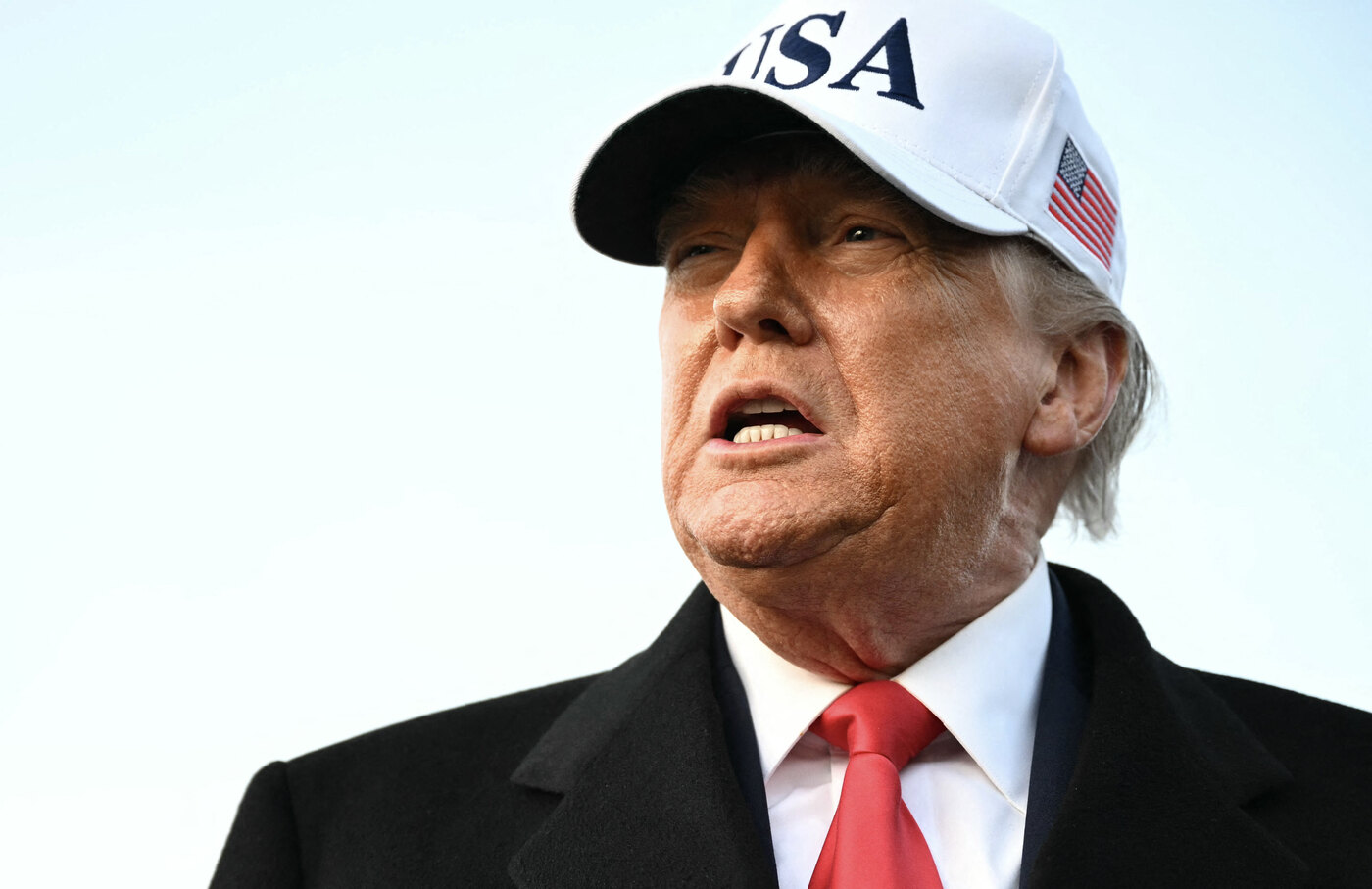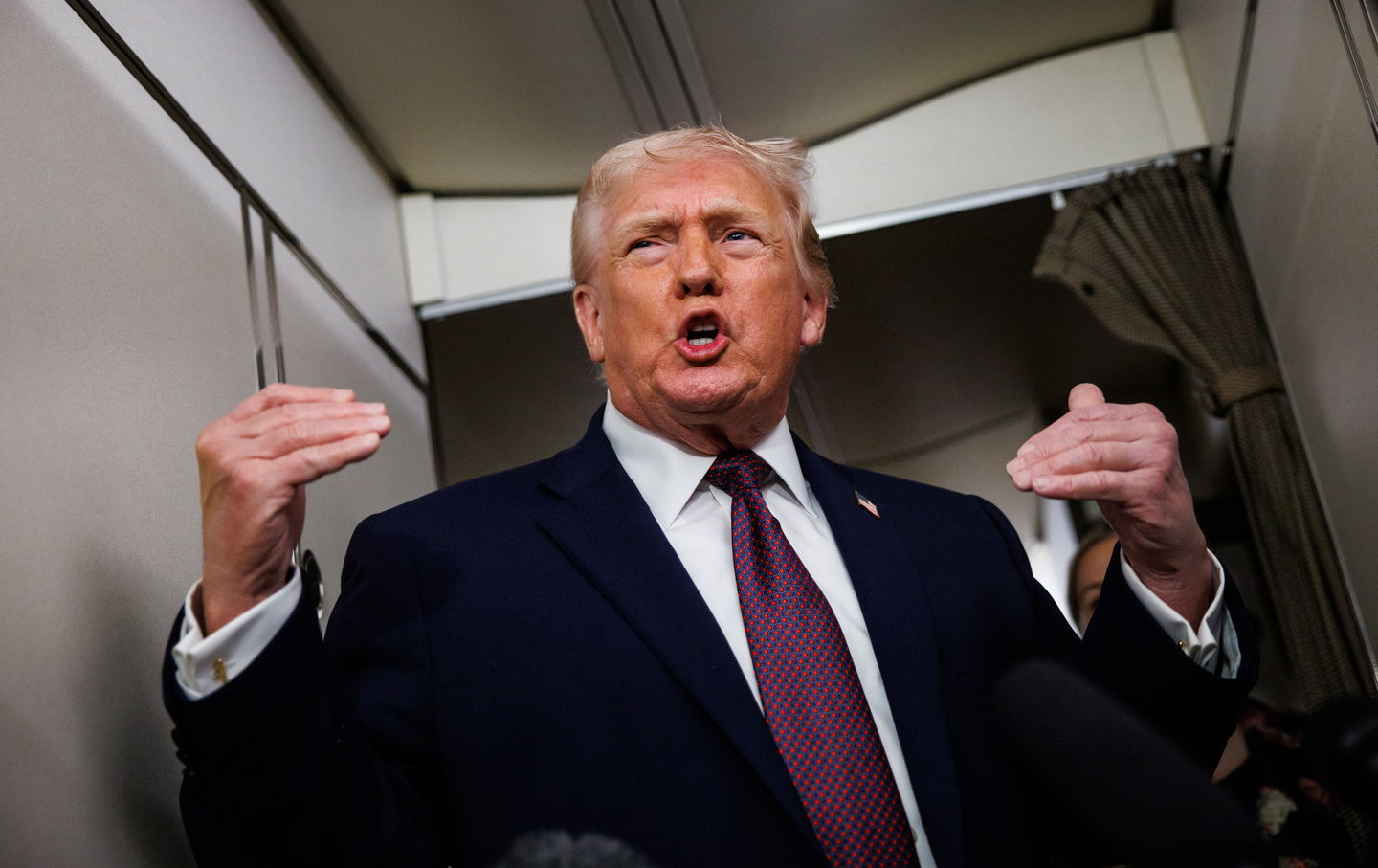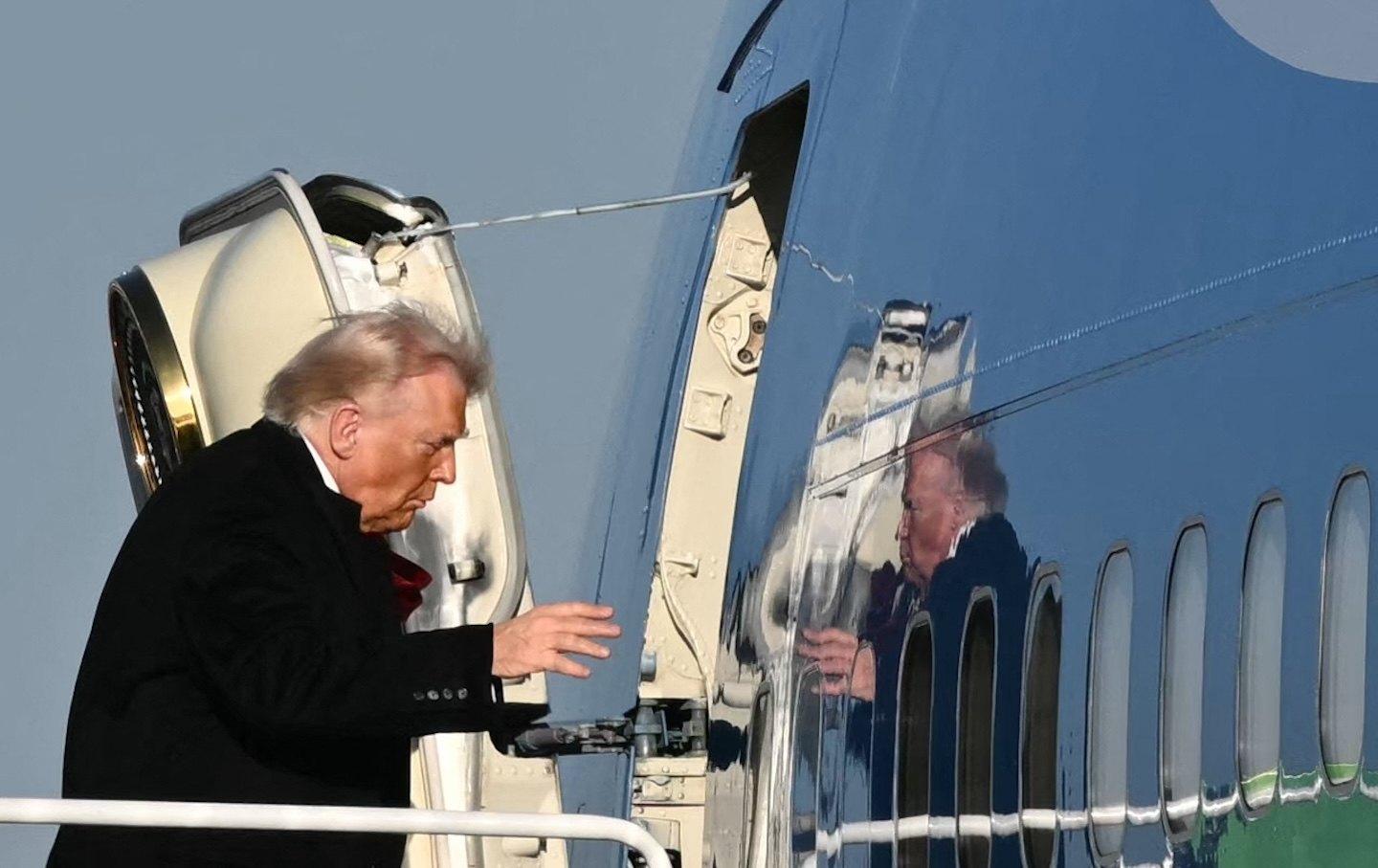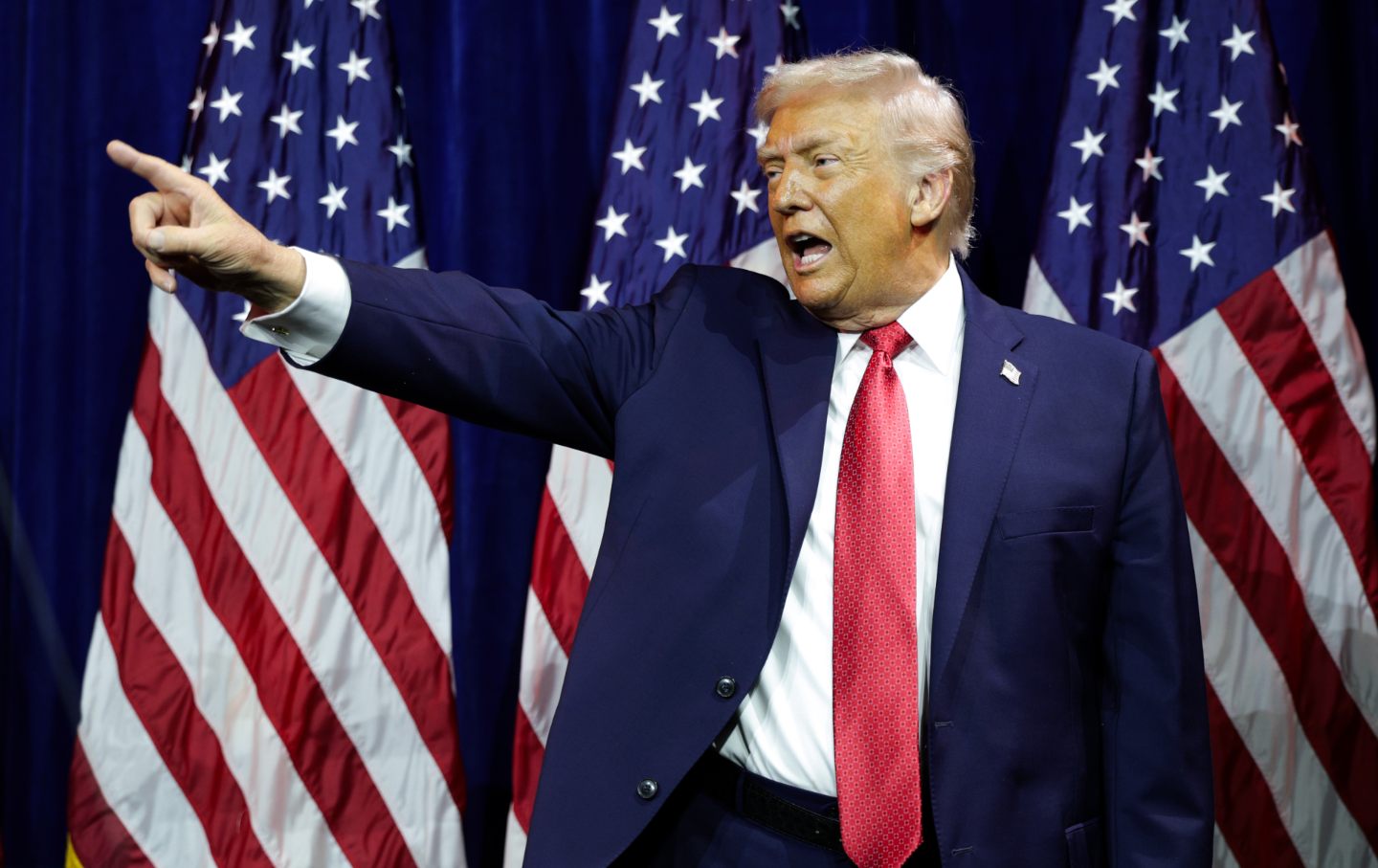Biden Versus the Pro-Palestinian Protesters
On this episode of The Time of Monsters, Yousef Munayyer on a president at war with his base.
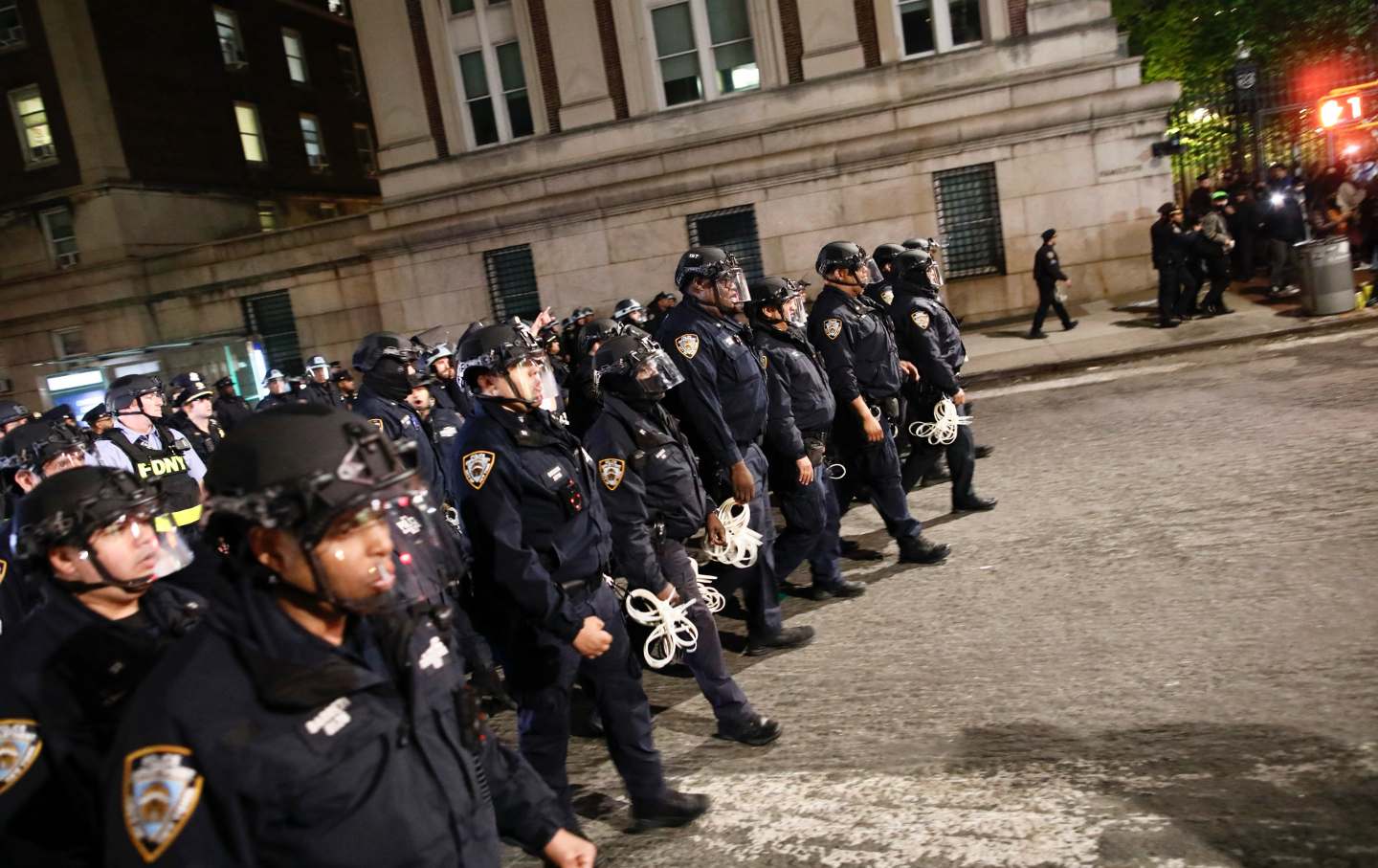
NYPD officers in riot gear march onto Columbia University campus, where pro-Palestinian students were barricaded inside a building and set up an encampment, on April 30, 2024.
(Kena Betancur / AFP via Getty Images)According to a recent CNN poll, 81 percent of voters age 18 to 35 disapprove of President Joe Biden support of Israel’s war in Gaza. This number should be a concern to Biden, because for his reelection bid to succeed he absolutely needs young voters to be as enthusiastically supportive of him as they were in 2020. The issue of Israel/Palestine is dragging Biden’s support down even as he needs to rally his base. But Biden is doubling down on his policy of offering a virtual carte blanche to Benjamin Netanyahu.
This conflict between Biden’s policy and the opinions of a supermajority of young people is now spilling into actual physical violence, as universities such as Columbia and UCLA send in cops to arrest pro-Palestine protesters.
To talk about the growing political divide and what it portends for the both the Middle East and the United States, I talked to Palestinian American writer Yousef Munayyer.

Here's where to find podcasts from The Nation. Political talk without the boring parts, featuring the writers, activists and artists who shape the news, from a progressive perspective.
Iran is facing upheavals at home and abroad. For more than two decades, the Islamic Republic has faced waves of protests from citizens demanding a more democratic society. Over the past two weeks, these protests have erupted with a new ferocity and are being met with violent repression. Meanwhile, the Israeli government is pushing the United States to renew bombing Iran, a military objective now being given the guise of a humanitarian mission. To discuss the turmoil in Iran and place it in the larger context of regional instability and competing visions of the future of the Middle East, I spoke with Annelle Sheline, a research fellow at The Quincy Institute who studies the region, in this special Friday edition of the podcast.
Advertising Inquiries: https://redcircle.com/brands
Privacy & Opt-Out: https://redcircle.com/privacy

